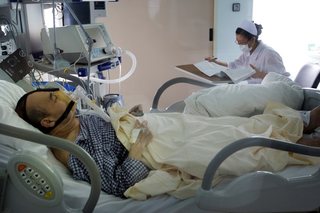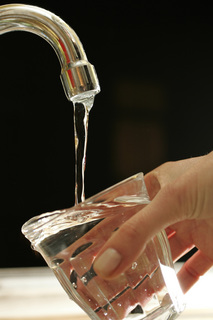At the World Social Forum in Porto Alegre, Brazil, the demonstrators are having a more successful time of it
Published:
31 January 2001 y., Wednesday
At the World Social Forum in Porto Alegre, Brazil, the demonstrators are having a more successful time of it — and they’re on the same side as the conference participants. The raid began around dusk on Thursday. A convoy of 18 buses rolled up to the gates of a farm in Não Me Toque, a drowsy farm-belt town in southern Brazil. The handful of security guards on duty stood by helplessly as hundreds of protestors spilled out of the buses, toppled the two meter fence and streamed over the property, waving flags and cheering as they marched.
OWNED BY MONSANTO, the American agricultural and chemical combine, the farm was an agricultural research station dedicated to experimenting with strains of genetically modified soybeans and other crops. Although Brazil banned widespread planting of GMOs two years ago, experimental farms such as Monsanto’s are allowed. But to the protestors — who ranged from landless peasants to militant Catholic youth — these fields nurturing dubious “Frankenfoods” were a powerful emblem of global corporate evil in their back yards. They camped out in the fields and on Friday morning, with television cameras rolling, ripped the crops out of the field like a human threshing machine. By the time the military police brigades stepped in, the Monsanto field was nothing but genetically modified compost. At least two other protests against GMOs were staged that morning, one in Porto Alegre, some 300 kilometers away, and another in Recife, in northeast Brazil, where one farmer died and several more were injured as 500 protestors clashed with police. The scattered demonstrations had a common thread.This was “one more blow in the urgent fight against multinational corporations,” said Jose Bové, the French farm leader and heralded McDonald’s basher, who had flown to Brazil to lend his now patented protest voice to the preferred enemy of the day: globalization.
Šaltinis:
NEWSWEEK
Copying, publishing, announcing any information from the News.lt portal without written permission of News.lt editorial office is prohibited.
The most popular articles
 51-year-old mother of eight, sits beside her sick husband, Tuy Muy, 52, in Battambang Provincial Referral Hospital. He is lying on a bed with a stomach problem, battling nausea and vomiting.
more »
51-year-old mother of eight, sits beside her sick husband, Tuy Muy, 52, in Battambang Provincial Referral Hospital. He is lying on a bed with a stomach problem, battling nausea and vomiting.
more »
 The length of maternity and paternity leave are at the heart of a crucial vote in the plenary sitting of March 24-25.
more »
The length of maternity and paternity leave are at the heart of a crucial vote in the plenary sitting of March 24-25.
more »
 The perception women have of the EU, the way the economic and financial crisis is affecting women and the lessons to be learnt ahead of the 2014 elections are among the issues to be tackled during a colloquium being held at the European Parliament on Tuesday.
more »
The perception women have of the EU, the way the economic and financial crisis is affecting women and the lessons to be learnt ahead of the 2014 elections are among the issues to be tackled during a colloquium being held at the European Parliament on Tuesday.
more »
 To achieve quicker de facto gender equality, Commission and Member States should adopt and implement specific gender equality policies, Parliament said in a resolution adopted on Thursday.
more »
To achieve quicker de facto gender equality, Commission and Member States should adopt and implement specific gender equality policies, Parliament said in a resolution adopted on Thursday.
more »
 Are you thinking about setting up your own business or are you already a successful entrepreneur? The Erasmus for Young Entrepreneurs exchange scheme offers an excellent opportunity for new entrepreneurs to acquire relevant skills for managing a small or medium-sized enterprise (SME).
more »
Are you thinking about setting up your own business or are you already a successful entrepreneur? The Erasmus for Young Entrepreneurs exchange scheme offers an excellent opportunity for new entrepreneurs to acquire relevant skills for managing a small or medium-sized enterprise (SME).
more »
 The pain of divorce and separation is all too often accompanied by financial and emotional hardship when one parent lives abroad and refuses to provide financial help.
more »
The pain of divorce and separation is all too often accompanied by financial and emotional hardship when one parent lives abroad and refuses to provide financial help.
more »
 Most Europeans still do not know they can call 112 anywhere in the EU to contact the police, fire brigade or an ambulance.
more »
Most Europeans still do not know they can call 112 anywhere in the EU to contact the police, fire brigade or an ambulance.
more »
 Helping to meet Haiti's humanitarian, reconstruction and nation-building needs must be the EU's priority in tackling the earthquake's aftermath, says Parliament in a resolution approved on Wednesday.
more »
Helping to meet Haiti's humanitarian, reconstruction and nation-building needs must be the EU's priority in tackling the earthquake's aftermath, says Parliament in a resolution approved on Wednesday.
more »
 Further work is needed to continue improving access to safe drinking-water at home, sewerage systems and safe bathing water throughout the European Region.
more »
Further work is needed to continue improving access to safe drinking-water at home, sewerage systems and safe bathing water throughout the European Region.
more »
 Poor housing remains a blight across Europe and Tuesday evening MEPs will debate a plan to extend EU funding to help renovate and repair housing stock for the poorest people on the continent.
more »
Poor housing remains a blight across Europe and Tuesday evening MEPs will debate a plan to extend EU funding to help renovate and repair housing stock for the poorest people on the continent.
more »